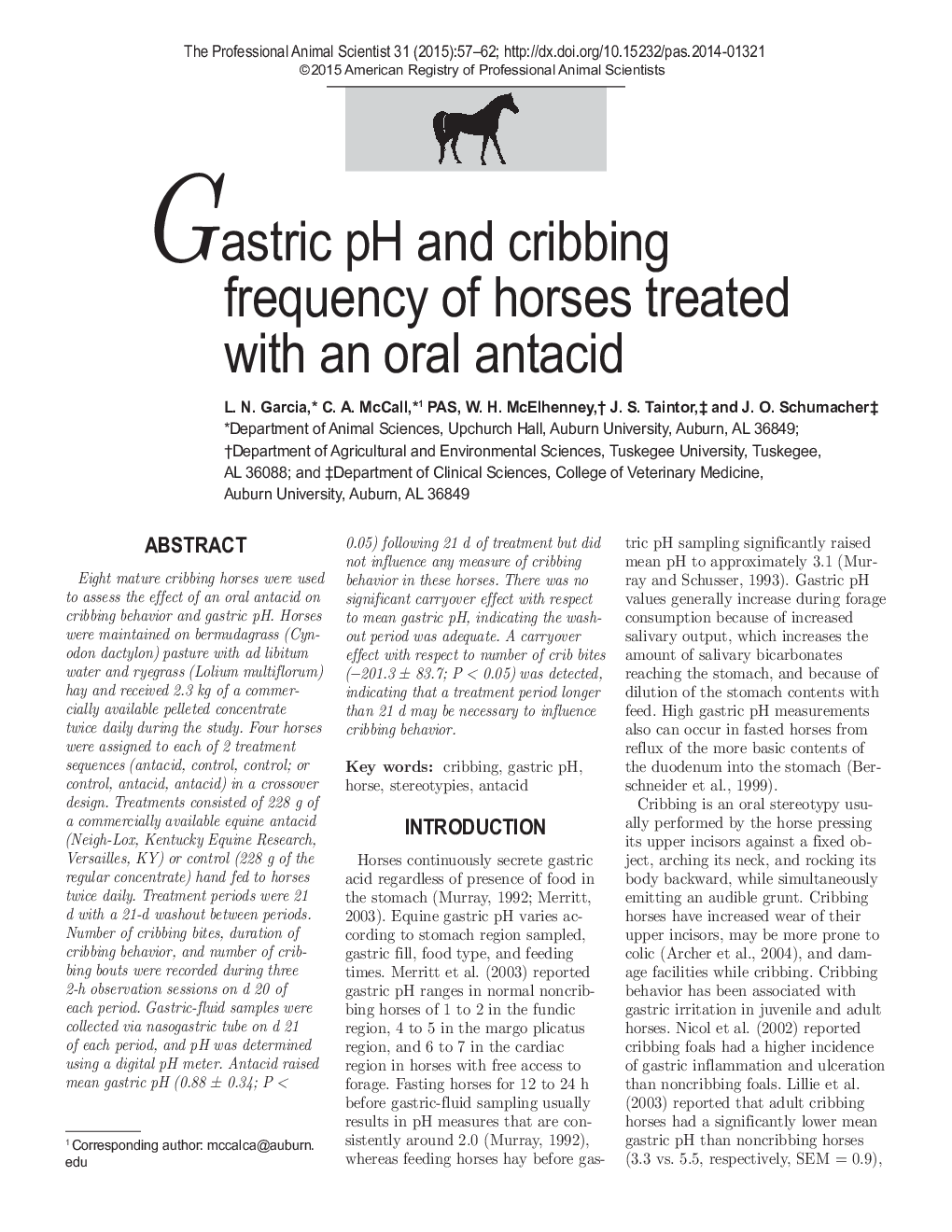| Article ID | Journal | Published Year | Pages | File Type |
|---|---|---|---|---|
| 10161835 | The Professional Animal Scientist | 2015 | 6 Pages |
Abstract
Eight mature cribbing horses were used to assess the effect of an oral antacid on cribbing behavior and gastric pH. Horses were maintained on bermudagrass (Cynodon dactylon) pasture with ad libitum water and ryegrass (Lolium multiflorum) hay and received 2.3 kg of a commercially available pelleted concentrate twice daily during the study. Four horses were assigned to each of 2 treatment sequences (antacid, control, control; or control, antacid, antacid) in a crossover design. Treatments consisted of 228 g of a commercially available equine antacid (Neigh-Lox, Kentucky Equine Research, Versailles, KY) or control (228 g of the regular concentrate) hand fed to horses twice daily. Treatment periods were 21 d with a 21-d washout between periods. Number of cribbing bites, duration of cribbing behavior, and number of cribbing bouts were recorded during three 2-h observation sessions on d 20 of each period. Gastric-fluid samples were collected via nasogastric tube on d 21 of each period, and pH was determined using a digital pH meter. Antacid raised mean gastric pH (0.88 ± 0.34; P < 0.05) following 21 d of treatment but did not influence any measure of cribbing behavior in these horses. There was no significant carryover effect with respect to mean gastric pH, indicating the washout period was adequate. A carryover effect with respect to number of crib bites (â 201.3 ± 83.7; P < 0.05) was detected, indicating that a treatment period longer than 21 d may be necessary to influence cribbing behavior.
Related Topics
Life Sciences
Agricultural and Biological Sciences
Animal Science and Zoology
Authors
L.N. Garcia, C.A. PAS, W.H. McElhenney, J.S. Taintor, J.O. Schumacher,
